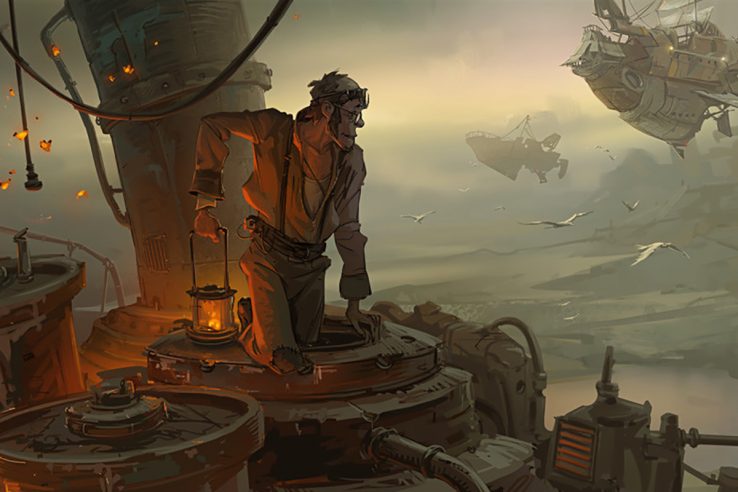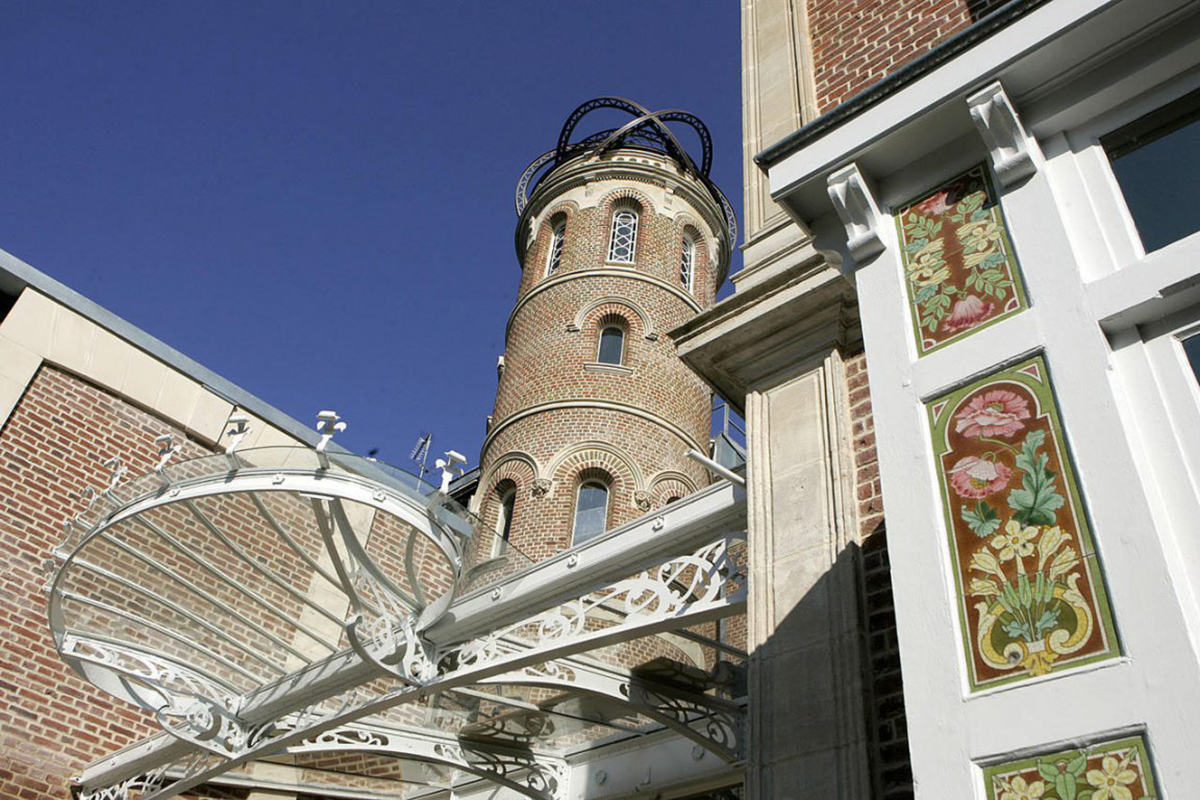
Is steampunk more than gears and goggles? According to Pablo Vazquez, “We can’t ignore that even though the name began as a joke, we are punks through and through.”
Writing for Tor.com, Vazquez tries to postulate steampunk as an anticapitalist “revolutionary spectacle” that is able to fill the “something” he feels is missing from our world today.
Vazquez admits that “we can’t exactly pinpoint” what’s missing, “but we know it’s missing.” He just feels it, you know. The future looks “cold and endangered,” Vazquez adds, so we must look back at the steampunk era for inspiration.
Of course, there is “no place” in steampunk for the elitism, racism, sexism and “various other cruel prejudices” that existed in Victoria’s days, but we can rehabilitate the “technological optimism” of the past — as if we have lost confidence in technology as a society today.
Vazquez claims that it’s despite if not because of our technological advancement that we feel we lack “something”, so we don’t need steampunk there.
But there’s more to be learned from the Victorians. “Communal harmony” and “individualistic development” — two nice things that point in opposite directions.
If, like Vazquez, you want people to be “majestic individuals,” able to achieve whatever they want to, you cannot have “communal harmony” at the same time. Which is it? Does steampunk celebrate the individual for his accomplishments? Or does it promote a form of communalism in which the individual is necessarily bound by conformity?
Vazquez doesn’t reflect on this dichotomy. He does complain that individuals are chained by the “trite vestments of the modern religion of branding and greed”. That “modern religion,” of course, is capitalism, the ideology that sets the individual free to achieve at the expense of communal harmony.
There is nothing revolutionary nor spectacular about what Vazquez likes steampunk to be. It’s not as if the ideology he describes didn’t exist yet. It’s called socialism. You can dress it up with gears and goggles; that doesn’t make it steampunk.





5 Comments
Add YoursI guess "genres do not evolve" was a suggested topic and mine is basically "they do" so…
So?
Ehhh, okay. So this was less of a rebuttal and more of a “here’s a sarcastic recap of what you said, followed by me telling you in exasperation that you’re wrong.”
But whatever. It was clear to me that the “capitalism” that he was railing against in his article was the capitalism that encourages those who wish to be successful to use unethical means to achieve a greedy, money-grubbing end. That same capitalism that has given corporations the status of an individual person. That same capitalism that says that no businesses should be bound by regulations, no matter how horrible their business practices may be. He was NOT referring to the intended “spirit” of capitalism, which is the lovely fantasy world in which everyone who works hard enough gets a piece of the pie.
In any case, I do not believe he was incorrect about what Steampunk has come to mean to those who participate in it actively. I’m not even an active steam-punk myself, but I have experienced both “communal harmony” AND “individualistic development.” The two are not opposites, and in fact can even exist quite harmoniously with one another in a world in which people allow, accept, and embrace each other’s differences, opinions, and talents. It is, actually, quite possible in small groups like the ones who dress in ridiculous anachronistic clothing and get together talking like idiots from the 19th century. Is it possible globally? Hell no. It would be a Gene Roddenberry dream come true if we ever saw a day in which all humankind accepted one another despite their differences, and I am not so optimistic as Mr. Roddenberry was.
Finally I will say that a rebuttal really ought to come from a place of intelligence. Using words that sound intelligent to mask a clearly emotionally-based argument is hardly an actual rebuttal. But clearly you are a person who automatically bucks against any statement which “misunderstands” the intent of capitalism. I’ve read other things Mr. Vazquez has written, and I’ll be honest – we disagree on more than a few points. But in this case, I will agree that Steampunk is exactly what he says it is, at least for me. Of course, you’ve already shown that you disagree with the idea that a word can have multiple definitions based on its actual impact on people, so my opinion of steampunk likely matters very little to you.
But good job, I hope this brings you a lot of traffic.
I don’t think you can isolate the “bad” capitalism from the “good” capitalism. There will always be bad people, whatever socio-economic system you subject them to. The problems you describe aren’t inherent to capitalism; they’re inherent to human nature.
Indeed. That’s a system that allows for individual development. A system, however, that seeks to ensure “communal harmony” will achieve neither. People cannot live in harmony when their individual aims and desires and opinions are suppressed for the sake of the community.
I do. Words have meaning. “A rose is a rose is a rose” — it can’t be different things to different people. It can have different value to different people, certainly, but steampunk can’t be a thousand-and-one different things to a thousand-and-one different people.
Moving on: I like steampunk design when it is more function than intimidation. The ethical issues raised by the use of brass and leather are proportional to the function of the finished artifact. If it actually functions, regardless of inefficiencies in the design, and it’s appearance is fantastic and thus entertaining and satisfying to the maker, art has been achieved and a statement made. Done.
I have found it impossible to simply glue found parts to mass-produced products in order to make them look cool.
A keyboard must remain a functioning keyboard; goggles must be fitted with optical glass. If the keyboard or goggles are rendered unusable by having been made too heavy or cold to be comfortably used, then progress has been mugged and the really cool artifact is destined for the landfill because it has no real world function. Cute, but useless.